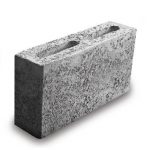What are pavement blocks ?
A pavement block, also known as a paving block or a paver, is a precast concrete or brick unit specifically designed for use in creating durable and visually appealing paved surfaces. These blocks are commonly used in various construction projects to form pavements, walkways, driveways, and other outdoor surfaces.
What size are pavement blocks in Ghana ?
In Ghana, the size of pavement blocks can vary, but a common standard size is around 200mm x 100mm x 80mm. It’s essential to note that sizes may vary based on specific project requirements and manufacturer specifications.
What are the names of paving blocks ?
Paving blocks come in different styles, shapes, and
materials, and they may be referred to by various names, including:
- Interlocking Pavers: These blocks are designed to fit together, providing a stable and durable surface.
- Concrete Pavers: Made from concrete, these blocks are known for their strength and versatility.
- Brick Pavers: Manufactured from clay or concrete, brick pavers offer a classic and aesthetic appeal.
- Cobblestone Pavers: Resembling traditional cobblestone, these blocks can create a rustic and charming appearance.
What is the use of paving blocks?
- Driveways: Paving blocks are frequently used to create durable and visually appealing driveways. Their strength and durability make them suitable for withstanding the weight of vehicles over time.
- Walkways and Pathways: Pavers are an excellent choice for constructing walkways and pathways in gardens, parks, and residential areas. They provide a stable and attractive surface for pedestrians.
- Patios and Courtyards: Paving blocks are popular for designing patios and courtyards, offering a practical and visually appealing solution for outdoor living spaces.
- Garden Borders: Pavers can be used to create defined borders around flower beds, trees, or other landscaping elements. This helps in separating different areas of a garden while adding a decorative touch.
- Outdoor Seating Areas: Pavers are often used to build outdoor seating areas or platforms, providing a solid foundation for furniture and creating functional and comfortable spaces.
- Pool Decks: The slip-resistant nature of many paving blocks makes them suitable for use around swimming pools. They create safe and stylish pool decks, enhancing the overall aesthetics of the area.
- Commercial Spaces: Paving blocks are widely used in commercial spaces such as shopping centers, business complexes, and public squares. They contribute to a professional and well-maintained appearance.
- Public Spaces: Pavers are employed in the construction of public spaces like parks, plazas, and pedestrian zones. They provide a durable surface that can withstand heavy foot traffic.
- Erosion Control: Permeable paving blocks allow water to pass through, which aids in managing stormwater and preventing erosion. This feature is particularly beneficial in areas prone to heavy rainfall.
- Streetscapes: Paving blocks are utilized in urban design for streetscape improvement projects. They can be used to create decorative patterns, crosswalks, and designated pedestrian areas.
- Commercial and Industrial Areas: Paving blocks are suitable for areas with heavy loads and traffic, such as industrial yards and loading docks. They offer a robust and durable surface for heavy machinery.
- Historical and Heritage Sites: Pavers are often chosen for restoration or enhancement projects in historical and heritage sites due to their classic appearance and durability.
Tips to Identify Quality Pavement blocks
Identifying quality pavement blocks is crucial for ensuring the longevity and durability of paved surfaces. Here are some tips to help you recognize high-quality pavement blocks:
Material Quality:
- Concrete Composition: Check for blocks made from high-quality concrete with the right mix of aggregates, cement, and water. Well-proportioned ingredients contribute to the overall strength and durability of the pavement blocks.
- Color Consistency: Uniform color across the blocks indicates a consistent mixture and proper curing during the manufacturing process.
Dimensional Accuracy:
- Uniform Size: Quality blocks should have consistent dimensions, ensuring ease of installation and a uniform appearance in the paved surface.
- Straight Edges: Straight edges and well-defined corners are signs of precision in manufacturing, contributing to a neat and professional finish.
Surface Finish:
- Smooth Surface: The surface of the pavement block should be smooth and free from irregularities. This not only enhances the visual appeal but also facilitates easy cleaning and maintenance.
- Even Texture: Look for blocks with an even texture, indicating proper molding and finishing during production.
Strength and Durability:
- Compressive Strength: Inquire about the compressive strength of the pavement blocks. Higher compressive strength suggests better resistance to wear, tear, and heavy loads.
- Frost Resistance: For regions with cold climates, ensure the blocks are designed to withstand freeze-thaw cycles without cracking or deteriorating.
Interlocking Mechanism:
- Precise Interlocking: If using interlocking pavement blocks, ensure that the interlocking mechanism is precise and well-designed. This enhances stability and minimizes the chances of displacement.
Water Absorption:
- Low Water Absorption: Quality blocks should have low water absorption rates. Lower water absorption contributes to resistance against weathering and prevents the growth of mold or algae on the surface.
Testing and Certification:
- Certification Standards: Verify whether the pavement blocks adhere to relevant industry standards. Manufacturers may have certifications indicating that their products meet specific quality criteria.
- Third-Party Testing: Blocks that undergo third-party testing for strength, durability, and quality assurance are more likely to meet or exceed industry standards.
Manufacturer Reputation:
- Research Manufacturers: Choose blocks from reputable manufacturers with a history of producing quality products. Customer reviews and testimonials can provide insights into the performance of the blocks.
Cost vs. Quality:
- Avoid Bargain Prices: While cost is a factor, excessively low prices may indicate compromised quality. Striking a balance between cost and quality is essential for a successful and long-lasting pavement installation.
Warranty:
- Manufacturer’s Warranty: Check if the manufacturer offers a warranty. A warranty reflects the manufacturer’s confidence in the quality of their product.
By paying attention to these factors, you can make informed decisions and select pavement blocks that meet the necessary standards for durability and longevity in your specific application.




